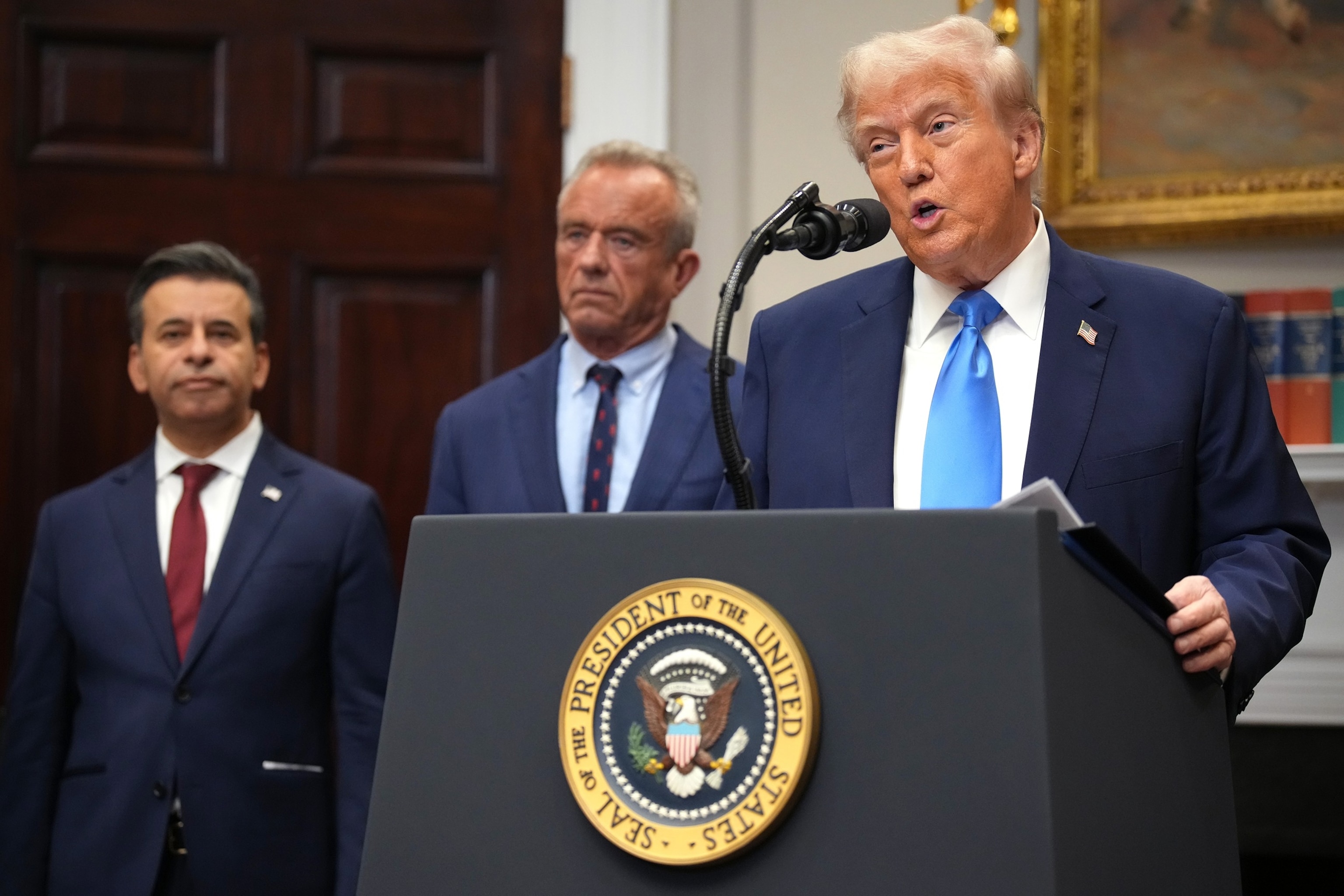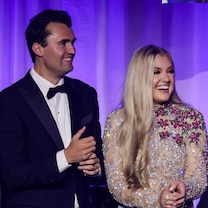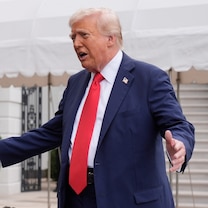'I'm giving my opinion': Trump deviates from own FDA in autism remarks

As President Donald Trump rambled and ad-libbed through an announcement meant to caution pregnant women about the possible links between the use of Tylenol and autism in children, his comments went beyond the available scientific evidence, and even the language of his own health department.
He made clear he was aware he was, at times, speaking for himself.
"You know, I'm just making these statements from me," he said at one point. "I'm not making them from these doctors, because when they talk about different results, different studies, I talk a lot about common sense."
Trump's remarks deviated from the more measured guidance offered by his health agencies in subsequent news releases and op-eds.
"Don't take Tylenol," he boomed multiple times during the hour-long event on Tuesday.
"You'll be uncomfortable. It won't be as easy, maybe. But don't take it if you're pregnant. Don't take Tylenol," he said.
In a statement from Kenvue, the maker of Tylenol, the company said it believes research shows that acetaminophen does not cause autism.

"We strongly disagree with any suggestion otherwise and are deeply concerned with the health risk this poses for expecting mothers," the statement read. "Acetaminophen is the safest pain reliever option for pregnant women as needed throughout their entire pregnancy. Without it, women face dangerous choices: suffer through conditions like fever that are potentially harmful to both mom and baby or use riskier alternatives."
Major medical groups immediately pushed back on Trump's claims, pointing out Tylenol is considered the only safe painkiller during pregnancy, and pointing out the possible dangers of untreated pain and fever during pregnancy, including a higher risk of stillbirth.
Trump told pregnant women they should "fight like hell not to take" the drug, used to treat fevers in pregnant women, acknowledging that "there may be a point where you have to, and you'll have to work that out with yourself."
As blunt and simple as Trump made it sound, however, the evidence around Tylenol and autism is not yet fully formed, a fact stated by the Food and Drug Administration in a press release Tuesday.
"It is important to note that while an association between acetaminophen and neurological conditions has been described in many studies, a causal relationship has not been established and there are contrary studies in the scientific literature," the agency said in the press release, which announced it would push for a label change for acetaminophen, Tylenol's main ingredient.
Meanwhile, in a joint op-ed in Politico, the heads of the FDA, the National Institutes of Health and the Center for Medicare and Medicaid Services, wrote that they "recognize the literature continues to evolve and evidence from family control studies have failed to find a correlation."
"Furthermore, acetaminophen is the only over-the-counter medication approved to treat fevers during pregnancy, and high fevers in pregnant moms can pose a risk to their unborn child as well, such as neural tube defects," they added.
The American College of Obstetricians and Gynecologists (ACOG) warned the administration's claims were "irresponsible" and could scare pregnant patients away from taking the drug, even when it's medically prudent.
"Today's announcement by HHS is not backed by the full body of scientific evidence and dangerously simplifies the many and complex causes of neurologic challenges in children. It is highly unsettling that our federal health agencies are willing to make an announcement that will affect the health and well-being of millions of people without the backing of reliable data," said Dr. Steven J. Fleischman, ACOG president, in prepared remarks.
At times on Tuesday, Trump suggested that childhood vaccinations could contribute to autism, a theory long promoted by his health secretary, Robert F. Kennedy Jr, but which has been discredited by researchers.
"I'm not a doctor, but I'm giving my opinion," he said.
"Vaccines do not cause autism," read a statement from the American Academy of Family Physicians in the wake of Trump's remarks. "Decades of rigorous research have failed to provide credible scientific evidence linking vaccines to autism. Vaccines are among the most effective tools we have to keep people, especially infants and children, healthy and out of hospitals. Continued claims about a vaccine-autism link risk public health by causing people to delay or defer vaccination out of fear."
ABC News








